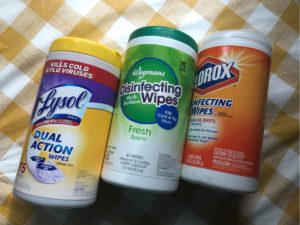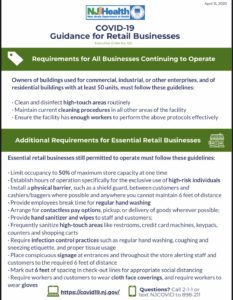Disinfectant wipes can seem like an easy  option to disinfect surfaces during the COVID-19 pandemic. Label instructions for disinfectant wipes include a “allow to remain wet” statement for efficacy. In many cases, the surface needs to stay wet for at least 4 minutes in order to be effective. Check your product label to verify the time for your specific wipes.
option to disinfect surfaces during the COVID-19 pandemic. Label instructions for disinfectant wipes include a “allow to remain wet” statement for efficacy. In many cases, the surface needs to stay wet for at least 4 minutes in order to be effective. Check your product label to verify the time for your specific wipes.
How wet your wipe is to start, how large of a surface you use the wipe on, the surface type and environmental conditions will all impact how long the surface stays wet. In a simple test to evaluate the ability to maintain the required wet time, three disinfectant wipe products were tested on fours surfaces. In an indoor setting at 70 degrees and 60% relative humidity without much air movement these wipes were used on a finished wood surface, a solid countertop, a plastic folding table, and a plastic table cloth. In all cases one wipe on a 4 [Read more…]

